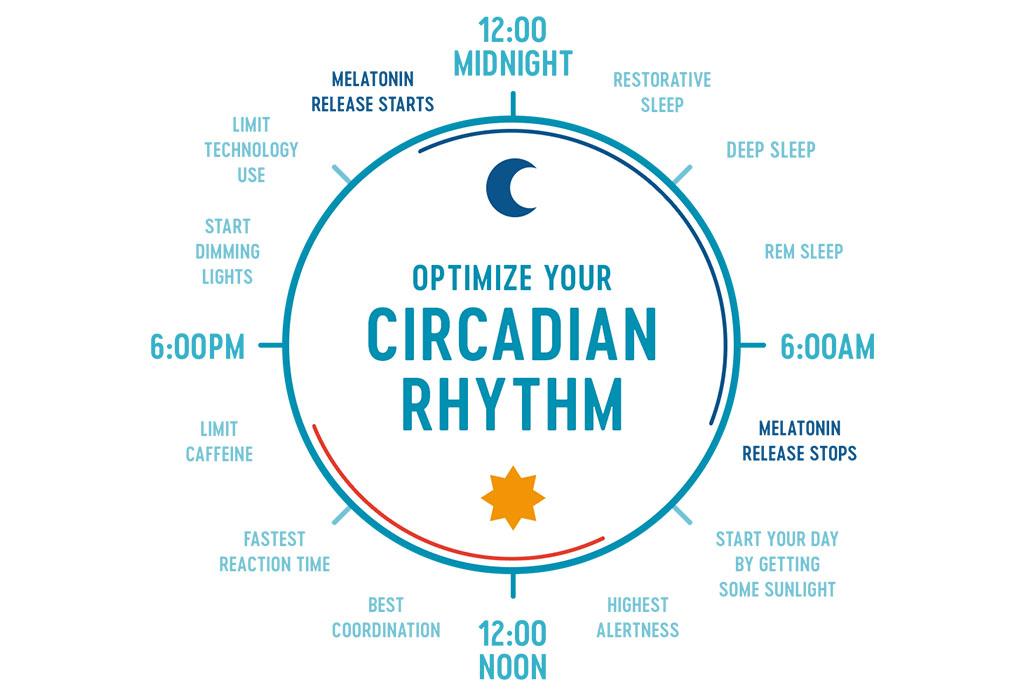The coronavirus pandemic poses a serious health threat to us all. Governments have implemented a variety of new policies including self-quarantine, self-isolation and social distancing. Whilst medically necessary to limit the spread of the virus, these new social policies can disrupt many of the stabilizing factors in our lives that support mental health.
One of the most important brain systems contributing to our daily wellbeing is the body’s internal biologic clock also known as our circadian rhythm (see below). This system keeps our body and our behaviour synchronized with the 24-hour cycle of light and dark. Keeping a predictable daily schedule and a regular routine helps to keep the body clock running smoothly. When our body clocks run smoothly, we feel better. Research shows that disrupted body clocks are associated with many different physical and mental disorders.

When faced with major disruptive events in our lives—such as those caused by the coronavirus pandemic—our body clocks have much more difficulty re-establishing regular biologic rhythms. Absent from the normal social routines of work, childcare, and socializing, the biological clock system may be confused or challenged. As a result, we may experience negative physical symptoms similar to jet lag such as disturbed sleep and changes in appetite, energy, and mood.
If you have a mental disorder such as depression, research suggests that you have a more sensitive body clock. Thus, your body clock is more prone to losing track of time when the environment is disturbed, and a disrupted body clock may lead to exacerbations of symptoms.
Helping your body clock to stay on track during major life disruptions such as the coronavirus pandemic may help you feel better. Here are some easy tips for improving the regularity of your daily routines, even when nothing about your life feels regular or normal.
Self-Management Strategies for Increasing Regularity of Daily Routines
- Set up a routine for yourself while you are in quarantine or working from home; routines help stabilize body clocks
- Get up at the same time every day: a regular wake time is the most important input for stabilizing your body clock
- Make sure you spend some time exercising and going outdoors every day
- Set times for a few regular activities each day such as home tutoring, telephone calls with a friend, or cooking; do these activities at the same time each day
- Try to eat meals at the same time every day; if you’re not hungry, at least eat a small snack
- Avoid naps during daylight hours, especially later in the day; if you must nap, restrict the nap to 30 minutes—napping can make it hard to fall asleep at night
- Avoid bright light (especially blue light) in the evening (eg, computer screens, smartphones); blue spectrum light suppresses the hormone that helps us sleep
-
Stick to a consistent sleep and wake time that fits your natural rhythm.
If your sleep pattern is disrupted, keeping routine in your life can be of great help. Additionally there are some very helpful Apps such as Headspace, Slumber and Calm, available that can help you slow down and relax before bedtime.
Sleep Well, Stay Healthy!
